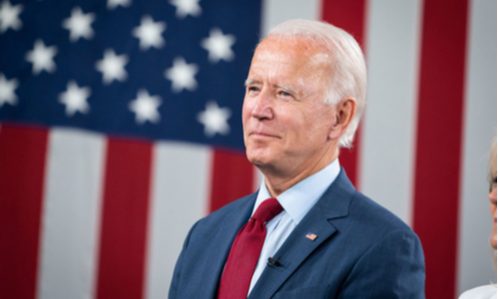
The Biden administration’s scrutiny now extends to noncompete clauses in the banking sector. The Federal Deposit Insurance(FDIC) has unveiled updated guidelines for bank mergers, proposing to outlaw noncompete agreements in employment contracts, marking the first time such measures have been introduced.
Under the proposed overhaul announced last week, deals involving banks that would hold assets exceeding $100 billion would face intensified FDIC scrutiny. Additionally, the revised guidelines explicitly prohibit the enforcement of noncompete agreements for employees at covered banks across all sizes in certain contexts. According to Bloomberg, this move aligns with a broader governmental effort to address contracts that inhibit employee mobility, as highlighted by antitrust and employment law experts.
Evan Starr, an associate professor at the University of Maryland specializing in noncompete research, emphasized the broader federal push towards enhancing labor market competitiveness. He noted, “We’ve seen a reconsideration of how various federal agencies can make labor markets more competitive. Noncompetes have been part of that discussion.”
The FDIC’s stance sets it apart from other federal banking regulators, as it becomes the lone agency among the three with authority over approving mergers to propose the avoidance of noncompete agreements for affected bank employees. Unlike the Office of the Comptroller of the Currency and the Federal Reserve, which primarily oversee larger banks and holding companies, the FDIC’s measures aim to curb noncompete clauses.
Read more: Dysfunction Junction: U.S. Merger Review Under the Biden Administration
The decision to focus on noncompetes coincides with broader regulatory actions. The Federal Trade Commission (FTC) is poised to finalize a proposal to ban noncompetes nationwide, while the National Labor Relations Board (NLRB) has asserted that such agreements largely contravene federal labor law.
Evan Starr remarked to Bloomberg on the unprecedented level of regulatory scrutiny on employment contract nuances, noting, “I don’t think we’ve ever seen so much regulatory scrutiny on the fine print of employment contracts—and it’s coming from all angles.”
The move underscores the Biden administration’s commitment to fostering fair competition within the labor market and signifies a significant shift in regulatory focus within the banking sector. As discussions continue and regulatory measures take shape, the landscape of employment contracts and labor practices in the banking industry may undergo substantial transformation.
Source: News Bloomberg Law
Featured News
Big Tech Braces for Potential Changes Under a Second Trump Presidency
Nov 6, 2024 by
CPI
Trump’s Potential Shift in US Antitrust Policy Raises Questions for Big Tech and Mergers
Nov 6, 2024 by
CPI
EU Set to Fine Apple in First Major Enforcement of Digital Markets Act
Nov 5, 2024 by
CPI
Six Indicted in Federal Bid-Rigging Schemes Involving Government IT Contracts
Nov 5, 2024 by
CPI
Ireland Secures First €3 Billion Apple Tax Payment, Boosting Exchequer Funds
Nov 5, 2024 by
CPI
Antitrust Mix by CPI
Antitrust Chronicle® – Remedies Revisited
Oct 30, 2024 by
CPI
Fixing the Fix: Updating Policy on Merger Remedies
Oct 30, 2024 by
CPI
Methodology Matters: The 2017 FTC Remedies Study
Oct 30, 2024 by
CPI
U.S. v. AT&T: Five Lessons for Vertical Merger Enforcement
Oct 30, 2024 by
CPI
The Search for Antitrust Remedies in Tech Leads Beyond Antitrust
Oct 30, 2024 by
CPI